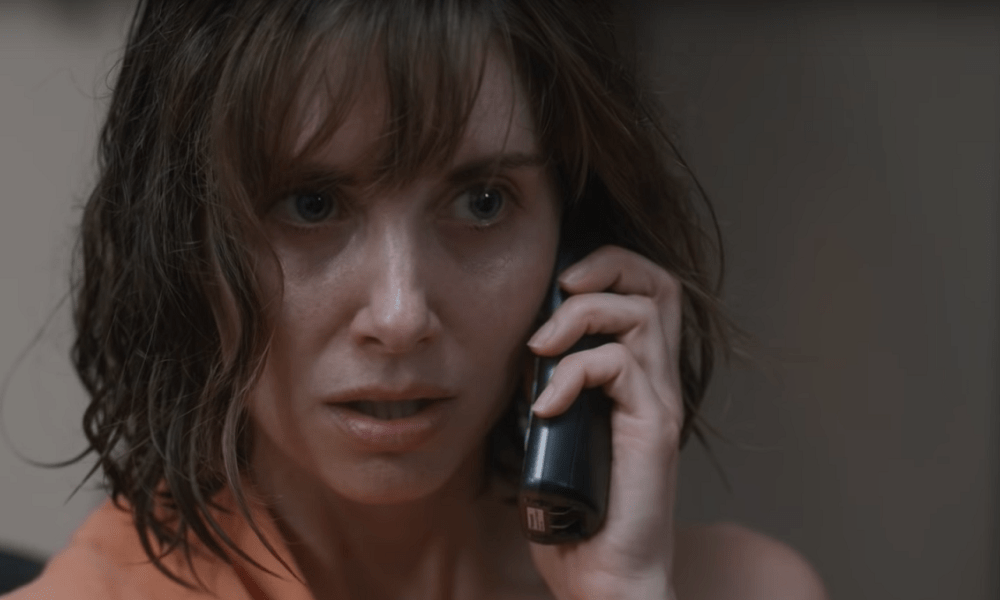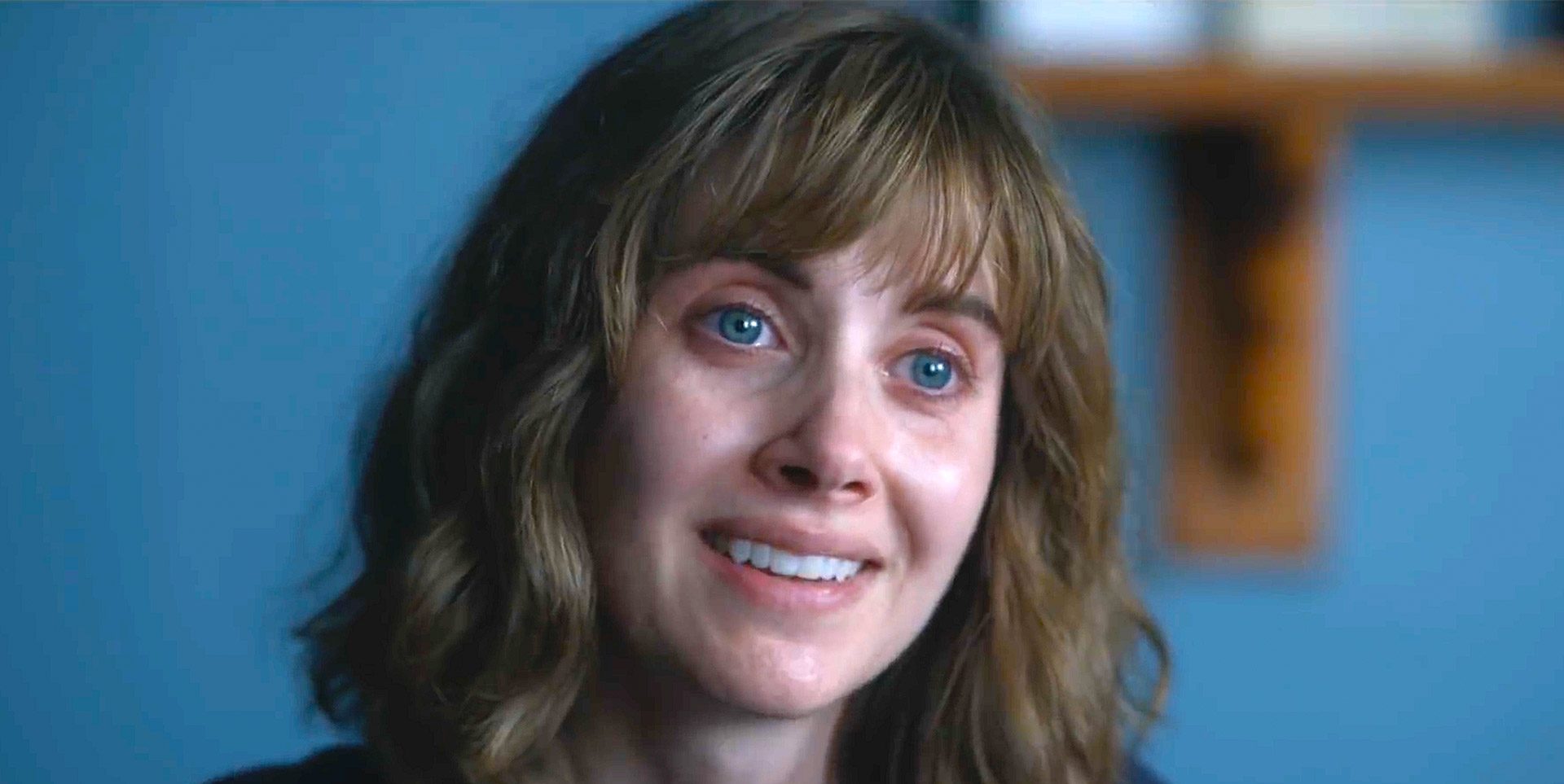Jeff Baena’s ‘Horse Girl‘ tells a haunting tale of a woman losing herself as her dreams begin to invade her reality, eventually melting into each other. It offers a delicate and unusual take on mental illness, creating something that is simultaneously surreal and devastating.
‘Horse Girl’ centers around Sarah, a warm-natured, socially awkward introvert who works at a crafts’ store and loves her job. She spends her spare time with her childhood horse, or watching her favourite supernatural sci-fi show. In fact, certain sci-fi elements play an important role in the film as strange events in Sarah’s life begin to unfold.
What starts out as sleepwalking (and nosebleeds) becomes increasingly twisted when Sarah begins to notice people from her dreams in real life. She repeatedly finds herself in a white void and experiences a loss of time. Soon, she realizes that she is being abducted and believes that she is her grandmother’s clone.
Of course, we also learn about Sarah’s family history of mental illness as the film progresses. But as we’re left in Sarah’s shoes, what’s real and what’s not becomes increasingly entwined. It’s natural to wonder if something so bizarre and tragic as ‘Horse Girl’ has some truth. Is it based on real events? Here’s everything you need to know.
Horse Girl: Influences from Alison Brie’s Life

‘Horse Girl’ is not really based on a particular true story. However, it has been strongly influenced by parts of Alison Brie’s own life and family. The film boasts of Brie’s best performance to date. Apart from acting, Brie also co-wrote the script of ‘Horse Girl’ along with Baena. The film is actually an accumulation of several influences from Brie and Baena’s lives and interests. But Brie’s own relationship with her grandmother and mental illness are perhaps the strongest inspirations. This is precisely why Brie’s performance and portrayal of Sarah leave such a lingering sense of melancholy. It’s personal, and it shows.
In an interview with Vulture, Brie opened up about it for the first time. Her grandmother suffered from paranoid schizophrenia, and her mother grew up in an incredibly traumatic situation. Brie grew up with what she calls “the mythology of my grandmother’s mental illness”. She heard stories about her mother’s childhood and how all of it affected her. Brie was also suffering from depression around the time she first started writing ‘Horse Girl.’
Brie also did several interviews with her mother, to understand her grandmother’s struggle, and to form Sarah’s personal backstory. But it only made her realize her own fears. ‘Horse Girl’, then, in many ways, becomes an abstraction of Brie’s own experiences and fears.
We see Sarah haunted my her grandmother’s past with mental illness, and we also know that her mother suffered from depression and committed suicide. The film’s ending reveals in a more metaphorical sense that Sarah becomes her grandmother, physically and mentally. This directly connects to Brie’s own internalized fear of inheriting her grandmother’s illness. In her interview, she stated:
“I started to realize this is much more about my fear of having mental illness in my bloodline. When will it come out? And will I have the awareness to know when it’s happening? In my own personal struggles with depression, I know the feeling of being helpless, feeling powerless, feeling alone. Right before I wrote [Horse Girl], I went through my deepest bout of depression in my life.”
On a completely different note, the sci-fi elements in the film have been influenced by Jeff Baena’s own interest in alien abductions. In an interview with Syfy, Baena mentioned, “I’ve always been fascinated by it, and I actually had some pretty vivid dreams that involve aliens and, not to get super weird, but I feel like I’ve seen some UFOs. Yeah, so it’s something of personal interest to me.” Even Brie previously mentioned that she believes in aliens and is a low-key conspiracy theorist herself.
Read More: Horse Girl Ending, Explained


You must be logged in to post a comment.